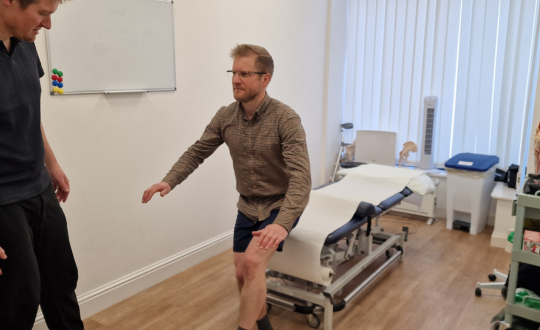
Physiotherapists play a crucial role in identifying conditions that may require orthopedic intervention. Through thorough assessments, they can determine whether a patient's musculoskeletal issue may need further investigation or treatment beyond physiotherapy, such as surgery or specialized orthopedic care. When physiotherapists encounter symptoms like persistent pain, limited function, or conditions unresponsive to conservative treatment, they collaborate with orthopedic specialists for further evaluation.
By making timely and accurate referrals, physiotherapists help ensure that patients receive comprehensive care, potentially including imaging, injections, or surgical consultations. This collaborative approach optimizes patient outcomes by combining physiotherapy rehabilitation with advanced orthopedic care when necessary.
What sort of cases require orthopedic intervention?
Assessment of your current movement capabilities, strength and injury risk via a series of screening methods.
-
May include anthropometric measurements: body fat, weight, height, etc.
Discussion and explanation of appropriate exercises, training intensity, volume and frequency.
Consideration of the requirement for further training, such as;
-
Cardiovascular training
-
Mobility & flexibility
-
Stability
-
Strength & Power
-
Endurance
-
Agility
Ongoing guidance, support, motivation and encouragement.
Education on training protocols, processes, your body and its adaptations to training and exercise.
